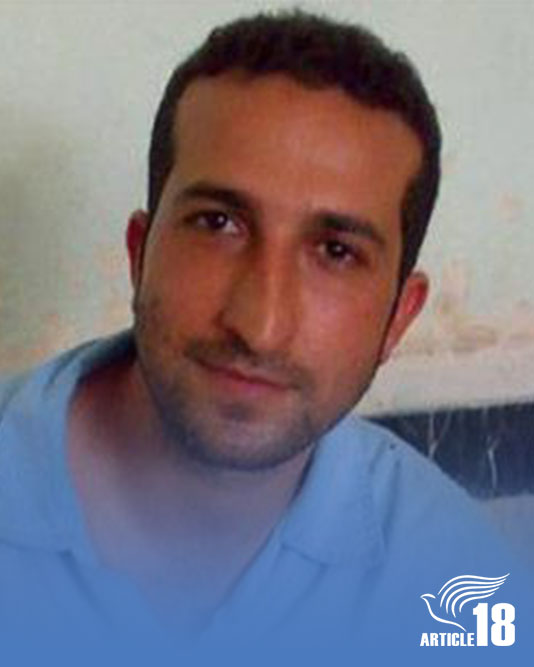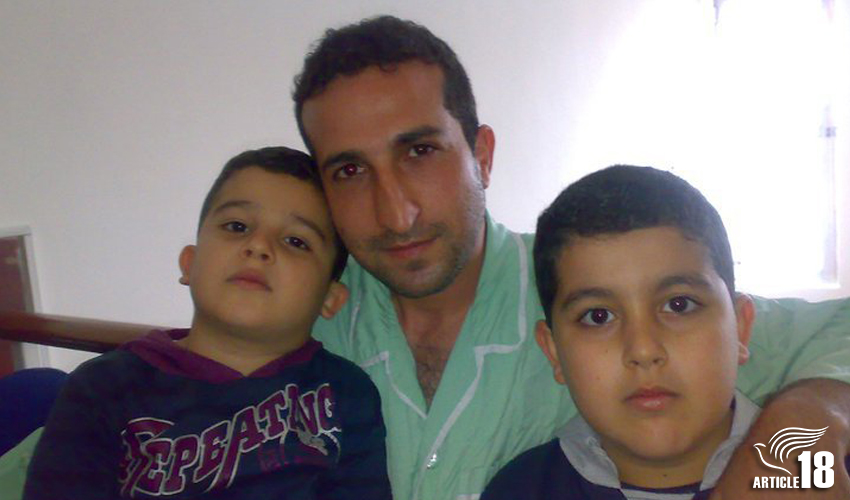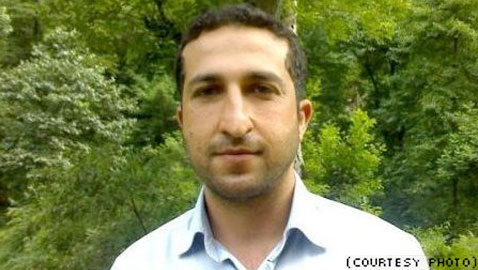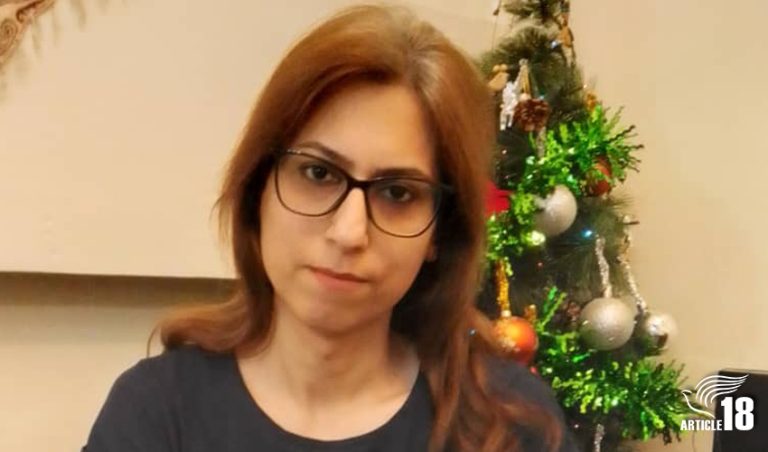
Iranian Christian prisoner Yousef Nadarkhani yesterday brought an end to his 21-day hunger strike.
Yousef, who is serving a ten-year sentence for his Christian activities, was protesting against his 15-year-old son Youeil being barred from school because he refused to take Islamic classes, while his elder son, Danial, 17, was only readmitted to school as a “guest”.
There has been no change in his children’s circumstances, but Yousef was given reassurances by the prison authorities that the matter would be looked into.
Both of Yousef’s children have been denied certificates showing their completion of the past two academic years – as a result of their refusal to take Islamic classes.
Members of recognised religious minorities – including Christians, as well as Jews and Zoroastrians – are ordinarily exempt from classes in Islamic Studies and the Quran, but children of converts to Christianity, such as Yousef’s, are not afforded this right as they are still considered Muslims.
Yousef and his wife Tina – both converts from Muslim backgrounds – have been fighting for the rights of their boys to identify as Christians for the past decade.
Indeed, it was this very issue that led to Yousef’s first arrest, which resulted in his 2010 death sentence for apostasy.
And although that conviction was quashed in 2012, following international outcry, Yousef still had to serve three years in prison for evangelising and was then re-arrested in 2016 on the new charges for which he is now back in Tehran’s Evin Prison, in the second year of his ten-year sentence for forming a “house church” and “promoting Zionist Christianity”.
Before he was taken back to prison in July 2018, Yousef tried again to ensure his sons were recognised as Christians, but the matter is still to be resolved after local authorities in Gilan Province, where the Nadarkhanis live, appealed against the higher education authority, which had ruled in the family’s favour.
As a result, at the end of the past two academic years, Yousef and Tina’s sons were not provided with certificates to show they completed their studies, because they failed to sit exams in Islamic Studies and the Quran.
Youeil was due to begin 10th grade this year, but he has yet to receive a certificate to show he completed 8th grade, let alone 9th. Meanwhile, Danial, who was due to begin 12th grade, has not received a certificate since completing 9th grade.
Last year, the boys were accepted as “guests” – and also fully paying students – pending the ruling in the family’s case. But this year, although Danial was accepted again as a fully paying “guest”, Youeil was told that, having failed to attain his certificate for the previous academic year, he could not return to school.

In a letter to the prison authorities, Yousef said his decision to go on hunger strike was “motivated by the necessity to defend my children as members of the Christian minority who are violated by discriminatory measures taken at the initiative of officials of the Ministries of Information and National Education”.
“This is the cry of a father, unjustly imprisoned,” he said, adding that it was “now 11 years that I have been fighting on legal grounds to assert their rights”.
Yousef appealed to the Minister of National Education and said he hoped the minister would “heed this appeal and that he will do, in accordance with the law, what is necessary to put an end to the injustices that my family are suffering as Christians”.
Background
A fatwa by Iran’s Supreme Leader at the time of Yousef’s initial apostasy seemed to pave the way for children of converts to be recognised as Christians.
It stated: “The [convert] himself may be considered an apostate, but if they married after the apostasy, according to their own new religious principles, their children will not be considered apostates.”
But it is believed that the Ministry of Intelligence is pressurising the higher education authorities not to set such a precedent by ruling in the Nadarkhanis’ favour.
Article18’s Advocacy Director, Mansour Borji, said this highlights the power of the Ministry of Intelligence in Iran – that they would even go so far as to contradict a ruling by the Supreme Leader, their commanding officer.
The local education authorities in Gilan, in their appeal against the ruling of the higher education authorities, said that while Yousef may have been recognised as a Christian, the same cannot be said of his wife, Tina.
Yousef and his wife object to this view, saying that Tina was never a practising Muslim and is willing to testify to this in court, and also to provide a copy of Youeil’s birth certificate, which shows that he was registered as a Christian.
They also object to being regularly referred to as kafirs (infidels) in the appeal launched by Gilan’s education authority, saying that they ought to instead be considered, like other Christians, as “people of the book” (the Bible).
Article18 calls for Iran to provide Danial and Youeil, and all children of converts, the opportunity to be educated as Christians, as is their right under Article 18 of the International Covenant on Civil and Political Rights, which Iran has ratified and which provides parents with the right to pass on their own religious teachings to their children, and denies authorities the right to intervene.
Mr Borji used the Nadarkhani family’s story in his testimony to the recent review of the persecution of Christians worldwide, commissioned by the UK government.




0 Comments
Trackbacks/Pingbacks